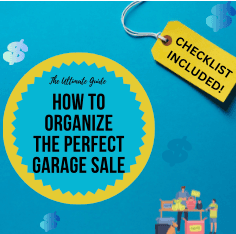Why recognizing moving fraud matters
Moving to a new home is stressful enough without falling victim to a dishonest moving company. Every year, thousands of consumers lose money and belongings to fraudulent movers who disappear after loading the truck or hold possessions hostage for inflated fees. Learning to spot the warning signs is your best defense.
Before you begin evaluating movers, get a free moving quote from vetted, licensed professionals to establish a reliable baseline.
Red flags of fraudulent moving companies
Lack of proper licensing
Legitimate interstate movers are required to have a valid USDOT number registered with the Federal Motor Carrier Safety Administration (FMCSA). If a company cannot provide this number or if the number does not check out on the FMCSA database, walk away immediately. Operating without proper credentials is one of the clearest indicators of a fraudulent mover.
Unrealistically low quotes
If an estimate seems too good to be true, it almost certainly is. Fraudulent companies frequently offer suspiciously cheap quotes to lure customers, only to inflate the price dramatically once your belongings are loaded on the truck. This bait-and-switch tactic is one of the most common moving scams in the industry.
No physical address or office
Reputable moving companies maintain brick-and-mortar locations where you can visit and verify their legitimacy. A company that operates solely online with no verifiable physical address warrants serious caution. A legitimate business should be proud to show you its operations.
Demanding large upfront deposits
Trustworthy movers typically request payment upon delivery, not large advance payments representing a significant percentage of the estimate. If a company demands a substantial deposit before moving day, treat it as a major warning sign.
Lack of written estimates
Professional moving companies provide detailed, documented pricing that itemizes all charges. Verbal estimates alone lack legal standing and leave you vulnerable to unexpected costs. Always insist on a written estimate before agreeing to any services.
Negative reviews and complaint patterns
Research any prospective mover thoroughly before hiring them. Patterns of complaints about damaged belongings, missed delivery dates, or unresponsive customer service should steer you elsewhere. Check the Better Business Bureau, Google Reviews, and FMCSA complaint records.
Unprofessional website and documentation
A company's website reflects its professionalism. Sites riddled with typos, broken links, and generic stock photos with no real company information signal a potential scam operation. Legitimate businesses invest in presenting themselves professionally.
Lack of transparency
Companies that evade direct questions, provide vague responses about pricing or insurance, or refuse to put commitments in writing demonstrate suspicious behavior. A trustworthy mover welcomes your questions and addresses concerns openly.
Missing written contracts
Never proceed with a move without a written contract outlining all terms and conditions, including pricing, payment schedules, delivery dates, and liability coverage. A mover who resists providing a contract is not one you should trust with your belongings.
What to look for in a reliable moving company
Proper licensing and federal compliance
- Verify the company holds a valid USDOT number through the FMCSA database
- Confirm they carry adequate insurance coverage for your belongings
- Check for membership in industry associations like the American Moving and Storage Association
Written, itemized estimates
- Request an in-home inspection for the most accurate quote
- Ensure the estimate itemizes all charges comprehensively
- Compare written estimates from at least three different companies
Positive reputation and reviews
- Read reviews across multiple platforms including Google, Yelp, and the Better Business Bureau
- Ask friends, family, and colleagues for personal referrals and firsthand experiences
- Look for consistent praise regarding professionalism, punctuality, and care
Transparent communication
- The company should answer questions directly and thoroughly
- Customer service representatives should be responsive and knowledgeable
- You should feel comfortable and informed throughout the entire process
Physical presence and established history
- Visit the company's office if possible to confirm it is a real operation
- Look for a consistent track record of reliable service over multiple years
- Verify the company name, address, and phone number across multiple sources
Want to compare costs from reliable movers? Estimate your moving costs with our easy-to-use calculator.
How to find a reliable moving company
Use trusted lead providers
Platforms that connect consumers with movers employ sophisticated algorithms and extensive databases to evaluate mover reputation and legitimacy. While these services are a helpful starting point, always conduct your own independent verification before committing.
Seek personal recommendations
Friends and family provide firsthand experiences that reveal insights no online review can match. Ask about the mover's professionalism, efficiency, handling of belongings, and overall service quality. Personal referrals remain one of the most reliable ways to find a trustworthy company.
Evaluate online reviews carefully
Positive reviews that consistently highlight the mover's professionalism, punctuality, and care indicate reliability. When assessing online feedback, consider the overall volume of reviews, how recent they are, and whether the sentiment is consistently positive or mixed.
Protecting yourself throughout the process
- Always get everything in writing, from estimates to contracts to insurance details
- Take an inventory of your belongings and photograph valuable items before the move
- Never sign blank or incomplete documents
- Pay with a credit card when possible for added consumer protection
- Trust your instincts and walk away if something feels wrong
Planning a long-distance relocation? Get a long-distance estimate to understand the full scope of your moving costs.
Final thoughts
The best defense against moving fraud is informed decision-making. By recognizing red flags early, verifying credentials thoroughly, and choosing transparency over convenience, you can protect your belongings, your budget, and your peace of mind. Take the time to research, compare, and verify before entrusting any company with your move.






